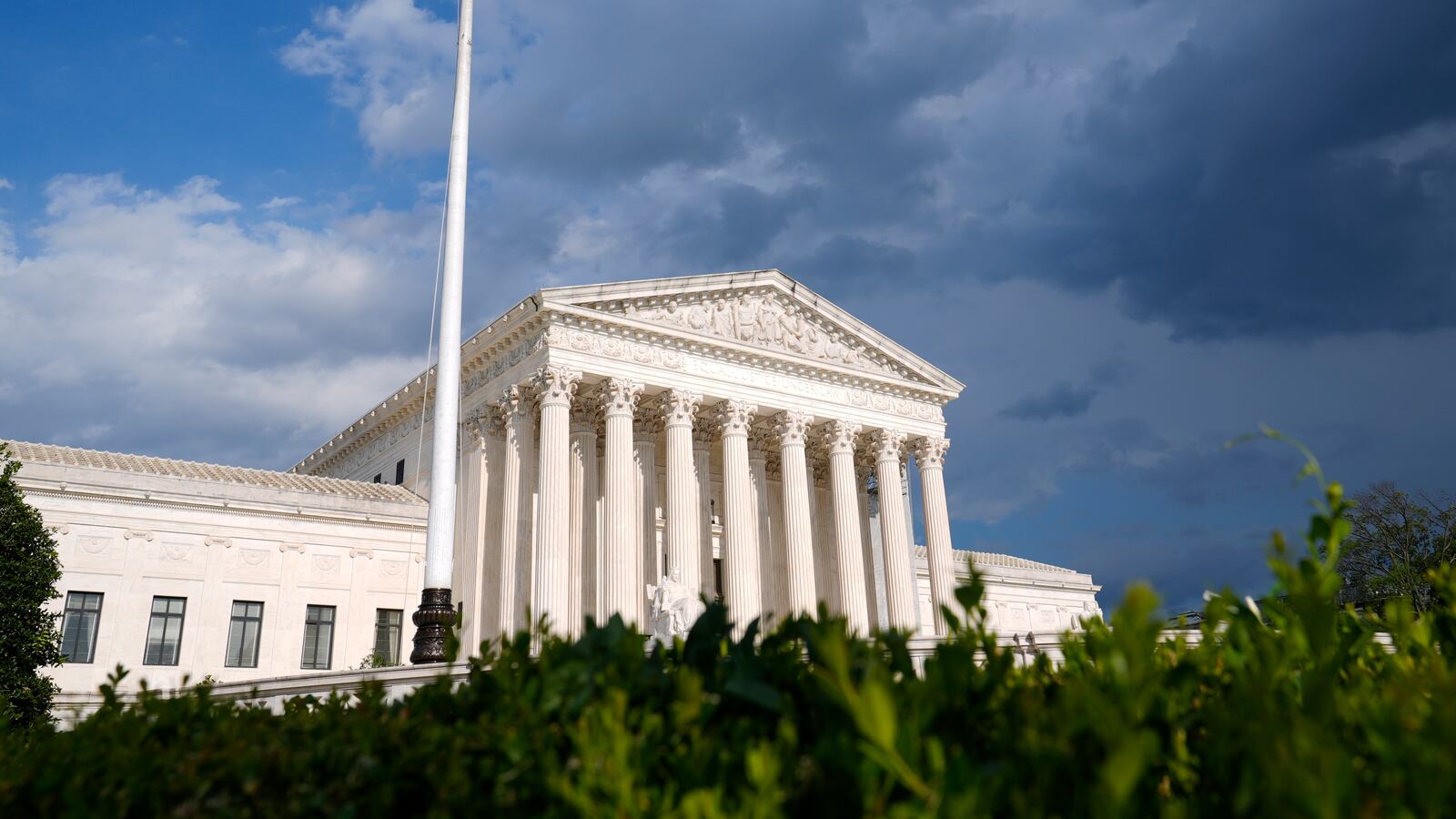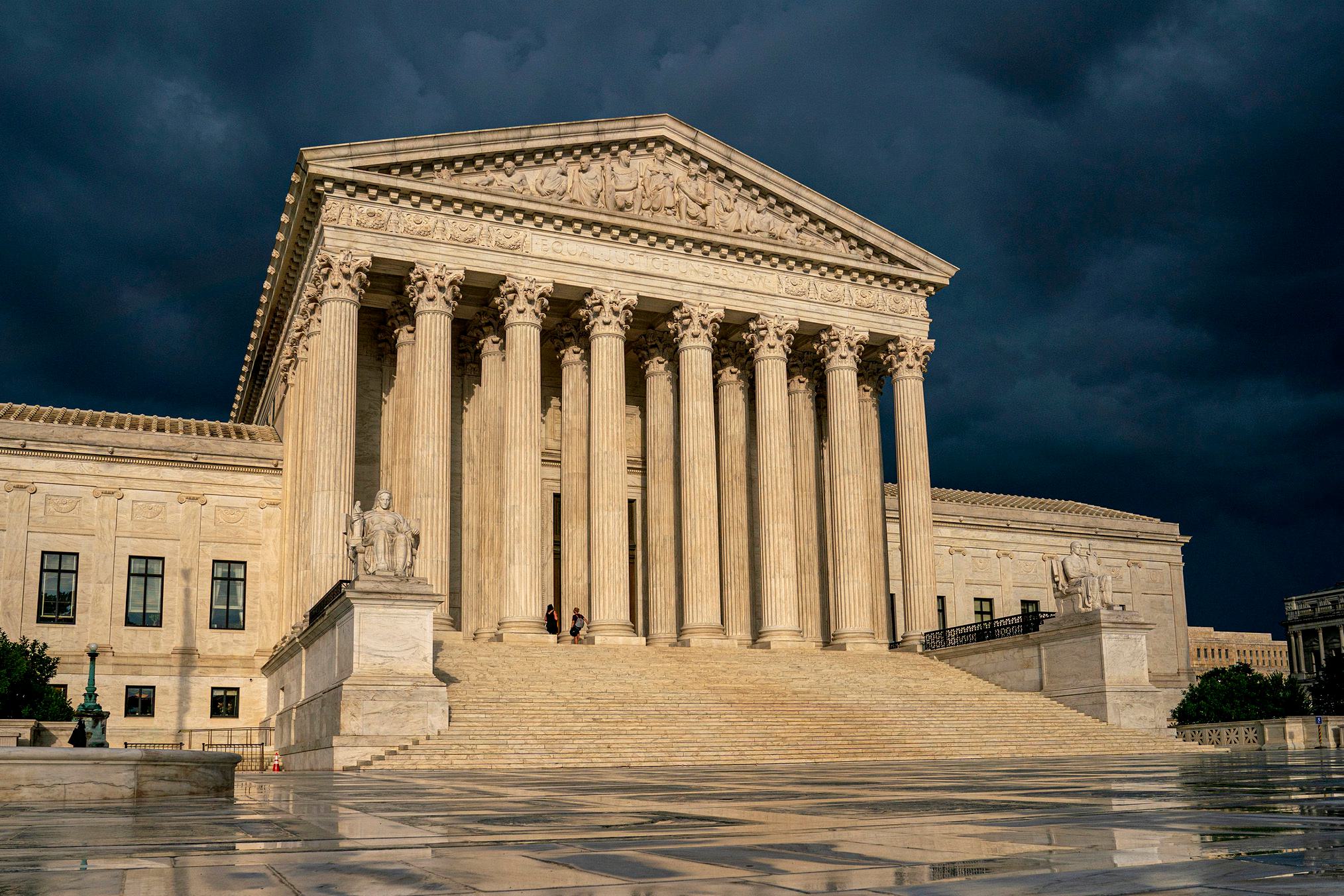 |
| AP |
The U.S. Supreme Court says people left waiting for months on their unemployment claims during the coronavirus pandemic in Alabama must be able to sue the state over the delay
People left waiting for months on their unemployment claims during the coronavirus pandemic in Alabama must be able to sue the state over the delay, the U.S. Supreme Court said Friday.
The 5-4 ruling comes after the Alabama Supreme Court rejected a lawsuit from 21 people. Some waited for months for a decision on whether they qualified for benefits, while others never got a decision or saw benefits suddenly stop without explanation, according to court documents. One man's claim was dismissed after he missed an administrative deadline because he was on a ventilator, they said.
The lawsuit seeking to speed up the process was dismissed by the state’s highest court, which found the plaintiffs must go through unemployment agency appeals before they can sue.
But the U.S. Supreme Court found that created a paradox.
“Because the claimants cannot sue until they complete the administrative process, they can never sue to obtain an order expediting the administrative process,” Justice Brett Kavanaugh wrote in the opinion joined by Chief Justice John Roberts as well as the nine-member court’s three liberal justices. --->READ MORE HERE
 |
| AP Photo/J. Scott Applewhite, File |
The U.S. Supreme Court (SCOTUS) ruled 5-4 on Friday a group of unemployed workers could sue the State of Alabama for allegedly delaying unemployment payments during the COVID-19 pandemic.
According to court records, petitioners are unemployed workers who contend that the Alabama Department of Labor unlawfully delayed processing their state unemployment benefits claims. They sued the Alabama Secretary of Labor in state court under 42 U. S. C. §1983, raising due process and federal statutory arguments and seeking a court order requiring the Department to process their claims more quickly. The Secretary moved to dismiss on several grounds, including that the state trial court lacked jurisdiction because the claimants had not satisfied the relevant statute’s strict administrative-exhaustion requirement.
According to SCOTUS, the trial court granted the secretary’s motion and dismissed the complaint, “leaving the claimants in a catch-22—unable to sue to obtain an order expediting the administrative process because they had not yet completed the process allegedly being delayed.” The Alabama Supreme Court affirmed on failure-to-exhaust grounds, concluding that §1983 did not preempt the State’s administrative-exhaustion requirement.
William Califf, a spokesman for Alabama Attorney General Steve Marshall, told 1819 News on Friday, “We are disappointed by the Court’s 5-4 decision, which ruled for plaintiffs based on a narrow argument the Alabama Supreme Court never had occasion to consider.”
“When the case returns to state court, we will continue to defend Alabama’s laws, and we expect to prevail,” Califf said.
The five justices in the majority were Chief Justice John Roberts, Justices Brett Kavanaugh, Sonia Sotomayor, Elena Kagan and Ketanji Jackson. The four dissenting justices were Amy Coney Barrett, Neil Gorsuch, Samuel Alito and Clarence Thomas. --->READ MORE HEREFollow links below to relevant/related stories and resources:
Still Battling Long COVID? The Mediterranean Diet May Help, per New Study
3. How the COVID-19 pandemic affected U.S. religious life
USA TODAY: Coronavirus Updates
WSJ: Coronavirus Live Updates
YAHOO NEWS: Coronavirus Live Updates
NEW YORK POST: Coronavirus The Latest
If you like what you see, please "Like" and/or Follow us on FACEBOOK here, GETTR here, and TWITTER here.

No comments:
Post a Comment